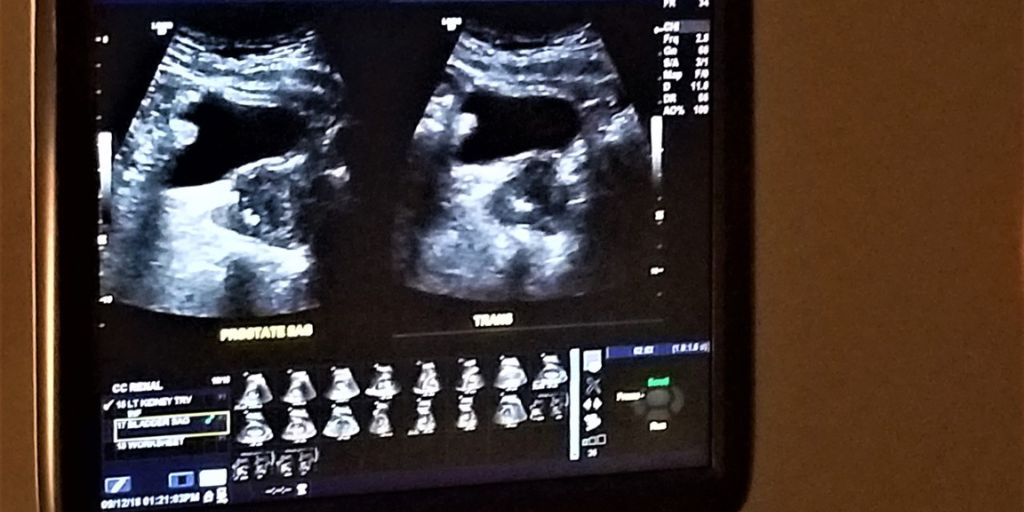
A condition linked to thousands of UK deaths has been significantly reduced by healthcare professionals at County Durham and Darlington NHS Foundation Trust, with the help of a new care model, supported by specialist nurses, and developed in partnership with NHS technology provider C2-Ai.
Created to help identify and promptly treat patients in hospital at risk from acute kidney injury, the project has led to a reduction in hospital acquired AKI of more than 80%. It is also enabling a range of other patient safety improvements in and beyond the hospital.
The model created in County Durham and Darlington could now be adopted in hospitals across the NHS, to help healthcare professionals reduce harm related to AKI, a complication associated with around 100,000 deaths in the UK annually(1).
The AI driven model helps staff to detect patients early and respond with appropriate care measures. It combines risk stratification digital tools developed by C2-Ai, accessed by staff through an app, with care processes developed at the trust involving a new specialist nursing team, preventive specialist intervention, assessment and follow-up.
Jeremy Cundall, medical director for County Durham and Darlington NHS Foundation Trust and executive lead for the project, said: “The partnership has resulted in patients being detected earlier – preventing AKI from occurring or mitigating the worsening of existing AKI. Accordingly, patients have been more effectively triaged to the right pathways of care including referral and transfer to tertiary renal units where appropriate.
“Importantly, during the Covid-19 pandemic, AKI cases were picked up quickly and appropriate treatment expedited. Since then, there has been a sustained gradual improvement in the reduction in AKI incidence across both medicine and surgery.”
A reduction in both community and hospital acquired AKI has been observed since the introduction of the new model. Overall AKI incidence at the trust fell from a rate of 6.5% between March and May 2020, to 3.8% during the same period in 2021 – lower than pre-pandemic rates recorded in 2019.
Importantly the trust significantly reduced hospital acquired AKI, from an average of 44 cases per month in 2019/20 to an average of five cases per month in 2020/21 – representing a reduction of more than 80%.
Findings previously published by the UK Renal Registry in its 2020 inaugural report, which examined data on more than 560,000 AKI episodes across England, revealed significantly longer lengths of stay and a higher mortality rate for patients with hospital acquired AKI, compared to those who developed the condition in the community. Notably 71% of people in England with an AKI episode had a hospital stay. The average 12-day length of stay more than doubled for hospital acquired AKI patients. Findings also showed 18% of people with an AKI episode died within 30 days of the first alert, rising to 24% for patients with hospital acquired AKI. (2)
Claire Stocks, early detection, resuscitation and mortality lead nurse for County Durham and Darlington NHS Foundation Trust, said: “This work has been a project very much about using collaborative partnerships to enhance patient safety and quality. An idea that was developed in a ‘cupboard conversation’ is now a fully operational specialist nurse service. Utilising digital innovations supports rapid triage, early detection and treatment to improve outcomes.”
The model has worked by providing a predictive AKI risk app at the point of care. This was developed using an MHRA registered medical device called CRAB, which is used in dozens of hospitals to monitor the safe performance of a range of clinical specialities and to flag harm risks early, including around a number of hospital acquired conditions. Alongside the app, a new specialist nursing team was recruited at the trust to provide staff with ward based education and expert advice. Specialist AKI nurses have also supported patients and have enabled an efficient standardised referral process for patients requiring specialist renal support. Education has also been provided to patients and carers and to primary care, to help prevent unnecessary admissions.
In addition to impact on patient care, the project has delivered significant financial gains. The trust has saved more than £2 million in direct costs from reductions in AKI incidence. Additional savings at commissioner level have also been achieved through avoidance of renal replacement therapy, whilst improved transfers of patients has released ICU capacity to support other elective surgery activity at a time when hospitals across the country are dealing with a growing national backlog.
Dr Mark Ratnarajah, a practicing paediatrician and UK managing director at C2-Ai, said: “There has been a big policy emphasis on the importance of data in saving lives in the NHS in recent months. This project is a prime example of how using technology to give healthcare professionals near real-time and quantifiable risk information, combined with a culture focussed on learning and driving forward clinical best practice, can make a big difference to patient safety and ease pressure on busy NHS hospitals.
“Acute kidney injury has been a priority for the NHS for many years, but like many things, has to some extent been over-shadowed by the pressures of the Covid-19 pandemic. The team at County Durham and Darlington are not only putting this potentially deadly condition back in the spotlight, they are providing a shining example of how to prevent serious harm caused by AKI, work which I hope can benefit many more hospitals.”












